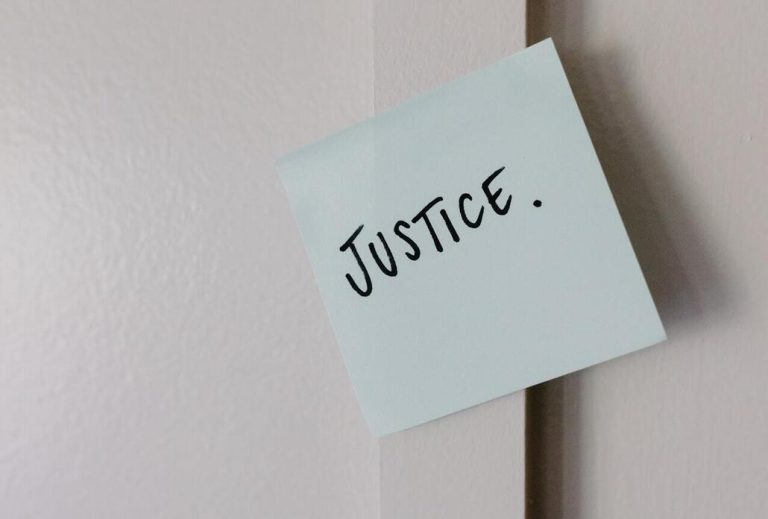You’ve been to Serbia and liked it so much that you wished to actually move there? Or you simply believe that investing in a property in Serbia is a good business move? If you’re wondering can foreigners buy property in Serbia, here are some guidelines on how these ideas may come to fruition.
The Serbian real estate market is a booming one. In recent years, there have been numerous building construction projects. This is best reflected in the fact that in 2022 alone, 29.659 new apartments with a surface of 2,143.751,00 m2 area were built. We are still waiting for the official statistics for 2023 year, however, it is obvious this number is higher. However, it seems that these numbers still do not meet the market demands, especially when it comes to Belgrade real estate and Novi Sad real estate. Almost two-thirds of all of the built apartments were built just in the two mentioned cities. Nevertheless, this is not that surprising, bearing in mind that Belgrade is the capital city of Serbia, and that Novi Sad is the capital city if the IT industry in Serbia.
While Serbian citizens can buy property in their home country without any restrictions, foreigners can buy property in Serbia if they fulfill certain requirements. Here we will try to explain when and if foreigners can purchase real estate in Serbia.
1. Can Foreigners Buy Property in Serbia as Natural Persons?
Yes, foreigners can buy property in Serbia as natural persons via both inter vivos transfer and mortis causa transfer. Inter vivos transfer refers to a transfer made during one’s lifetime (e.g., concluding a Deed of Gift or a Sales & Purchase Agreement) and mortis causa transfer refers to a transfer made after the end of one‘s life (such as inheritance).
In both cases, the main condition that needs to be satisfied is the existence of legal or factual reciprocity.
The condition of legal reciprocity is met if Serbia has concluded a bilateral agreement regulating the issue of foreigners acquiring real estate with the country in question. In order to find out whether Serbia and your country have signed this type of agreement, please see the lists of the countries in the tables below:
Table 1 – Countries with confirmed reciprocity (inter vivos transfer)

Argentina | Cyprus | Lebanon | Russian Federation |
Armenia | Czech Republic | Liechtenstein | Senegal |
Australia | Denmark | Lithuania | Singapore |
Austria | Dominican Republic | Luxembourg | Slovakia |
Azerbaijan | Egypt | Malta | Slovenia |
Bahrain | El Salvador | Mexico | The South African Republic |
Belarus | Finland | Moldova | Spain |
Belgium | France | Montenegro | Switzerland |
Belize | Georgia | Morocco | Syria |
Bosnia and Herzegovina | Germany | Netherlands | Turkey |
Brazil | New Zealand | Ukraine | |
The British Virgin Islands | Hungary | Norway | United Arab Emirates |
Bulgaria | Iran | Panama | United Kingdom |
Canada | Ireland | Peru | United States |
China | Israel | Poland | Uzbekistan |
Colombia | Italy | Portugal | Yemen |
Confederation Sweden | Japan | Qatar | The Republic of Korea |
Sri Lanka | DPR Congo | Zambia | Algeria |
Croatia | Jordan | Republic of Kazakhstan | |
Cuba | Latvia | Romania |
Table 2 – Countries with the confirmed reciprocity (mortis causa transfer)
Austria | Hungary | Poland | Ukraine |
Belarus | Japan | Romania | United Kingdom |
Bosnia and Herzegovina | Mongolia | Russia | USA |
Bulgaria | Montenegro | Slovakia | Albania |
Israel | Croatia | Canada | North Macedonia |
Czech Republic | Netherlands | Slovenia |
If your country of origin is not listed in the tables, there is still an opportunity for foreigners to buy or inherit property in Serbia – if the condition of factual reciprocity is fulfilled.
Factual reciprocity implies that both the Law and practice of the country in question allow the citizens of Serbia to acquire immovable property under the same conditions as Serbia allows its citizens.
The impact of factual reciprocity differs depending on the type of transfer. When it comes to inter vivos transfer, the existence of factual reciprocity has to be determined in each case. That means that every individual interested in land for sale in Serbia must send a request for an explanation of reciprocity to the Ministry of Justice of the Republic of Serbia and pay a tax of 1,990 dinars. Given that the mentioned request is a strictly formal act in the Serbian language, we do advise you to use professional legal assistance. The Ministry of Justice decides upon the request in approximately two weeks, and at that moment, you find out whether you are eligible to invest in the Serbian real estate.
Mortis causa transfer, on the other hand, does not require that factual reciprocity is verified in each situation. Moreover, there is an established practice that factual reciprocity does not get determined at all. This is due to the so-called presumption of factual reciprocity, or, in other words, a presumption that every state allows citizens of Serbia to inherit real estate in their country freely. Starting from that presumption, foreigners who are natural persons can inherit property in Serbia without any restriction. However, when there is doubt whether reciprocity really exists, interested parties are permitted to prove the opposite.
With respect to natural persons and foreign investment in Serbia’s real estate, there is an additional requirement that should be discussed in particular.
Namely, foreigners who are natural persons can buy property in Serbia irrespective of the fact whether they are also doing business in Serbia or not. Nevertheless, both the buyers who are professionally engaged in Serbia and those who are not – suffer limitations.
Specifically, foreigners who are natural persons can buy property in Serbia if doing business in Serbia, i.e., foreigners can buy apartments, buildings and land in Serbia, only if those properties are necessary for the performance of their professional activity. To the contrary, foreign natural persons not doing business in Serbia can become owners of the apartments and buildings in Serbia without restrictions, but are not able to buy land, except for the land belonging to that apartment or building.
2. Can Foreigners Buy Property in Serbia as Legal Entities?
Foreign legal persons, just like foreign natural persons, can buy property in Serbia.
Also, foreign legal and natural persons have one of the most important features in common – they both have to fulfil the condition of reciprocity. Thus, just as with the foreign natural persons, the country of origin of the person in question still plays the main role. Due to the fact that, as explained, legal persons making inter vivos transfer, should in each situation check whether Serbia has concluded a bilateral contract with their home country. If the answer is negative, the said procedure for getting the Ministry of Justice’s explanation of reciprocity should be initiated. On the other hand, there is a possibility for the presumption of factual reciprocity for legal persons interested in the mortis causa transfer.
Requirements for foreign legal persons to become owners of real estate in Serbia are stricter than for foreign natural persons in one particular manner.
Namely, foreign legal persons do not have the possibility to own real estate in Serbia if they do not own a company, or do business in Serbia otherwise. Keep in mind that this proposition, although being a restriction, allows for all foreign legal persons, unlike all foreign natural persons, to buy all types of real estate in Serbia, including the land. Note that the said opinion of the Ministry of Justice is necessary in this case as well, since the Ministry has to confirm that one‘s company performs business within the Serbian borders.


3. Can Foreigners Buy Land in Serbia?
Although both foreign legal and foreign natural persons have the opportunity to buy land in Serbia, there is one exception to the rule that needs to be taken into account. Namely, there are a plethora of different types of land in Serbia (construction land, forest land, agricultural land, etc.), and – when it comes to foreigners – not all of the types are available to buy.
The Serbian Law on Agricultural Land prohibits foreign natural and legal persons from becoming owners of agricultural land in Serbia, under any circumstances. However, despite the fact that this prohibition seems impossible to avert, there are some ways to bypass this obstacle.
1) Special Purpose Vehicle (SPV)
A Special Purpose Vehicle is, by definition, a subsidiary of a company created to fulfill the narrow, specific, or temporary goals of the parent company. It is usually used to own a single asset (and associated permits and contract rights) and to allow for easier transfer of that asset.
That being said, foreign natural and legal persons have the legal opportunity to form a company in Serbia as a domestic legal personality under Serbian law – disregarding the fact the owner is a foreigner. That newly-formed company would then have the possibility to buy the land in Serbia under the same circumstances as a domestic legal person – including the agricultural land.
If you find this possibility tempting, but are not familiar with the process of forming a company in Serbia, please visit our blog Company Formation in Serbia in 7 Steps to get further information.
2) Buying through a domestic legal person who already owns agricultural land
Another option is for a foreign natural or legal person to buy the already formed Serbian company, whose property includes agricultural land. By buying the company,a foreigner automatically becomes the owner of all of its assets, together with the agricultural land.
This option is particularly attractive to foreigners who are just interested in the land for sale in Serbia but not in other forms of investment, as it is less complicated and does not require the procedure of forming a new company.
3) The newly established privileged position of EU citizens
Amendments to the Law on Agricultural Land entered into force on August 30th, 2017, and their application started on September 1st, 2017. These amendments are especially important for this subject matter, due to the fact that they introduced new conditions for non-residents from the EU (both natural or legal persons), to be fulfilled in order to become owners of agricultural land in the Republic of Serbia. In other words, they created a new possibility: EU citizens can buy Serbian agricultural land if they fulfill the conditions provided by the law. To find out whether you conform to the prescribed demands, feel free to check out our post, Agricultural Land for Sale in Serbia – the Law on Agricultural Land Liberalization?
4. Conclusion
If you are a foreigner interested in buying property in Serbia and have already started the search for let’s say, luxurious Belgrade apartments or charming Belgrade homes for sale with the real estate broker, do not hesitate to use the information from this blog and to finally start the procedure. After making this first step, make sure to visit our blog Buying Property in Serbia for Foreigners in 7 Steps to find out about the remaining steps, which will ensure that your dream becomes reality.
























